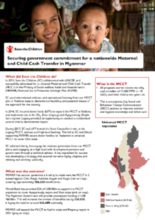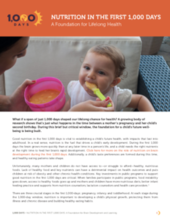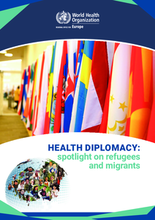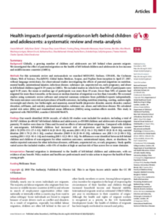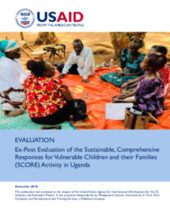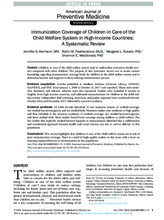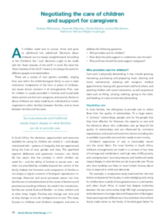Displaying 81 - 90 of 243
This document summarises Save the Children's involvement in supporting the Government of Myanmar and other partners to test and roll out a "First 1000 days" Maternal and Child Grant Programme that has proven to prevent chronic malnutrition.
1,000 Days, with support from Zero to Three and their Think Babies Campaign, has created this resource, Nutrition in the First 1,00 Days, to focus on the importance of investing in nutrition during this foundational period.
This book is part of the WHO Regional Office for Europe’s commitment to work for the health of refugees and migrants. It showcases good practices by which governments, non-state actors and international and nongovernmental organizations attempt to address the complexity of migration, by strengthening health system responsiveness to refugee and migrant health matters, and by coordinating and developing foreign policy solutions to improve health at the global, regional, country and local levels.
This study investigated the effect of parental migration on the health of left behind-children and adolescents in low-income and middle-income countries (LMICs).
The All Babies Count (ABC) initiative was a comprehensive health systems strengthening intervention designed to improve neonatal care in rural public facilities. This article describes ABC implementation outcomes, including development of a quality improvement (QI) change package.
This ex-post evaluation examines the sustainability of outcomes from USAID’s Sustainable, Comprehensive Responses for Vulnerable Children and their Families (SCORE) activity.
The purpose of this systematic review was to assess current knowledge regarding immunization coverage levels for children in the child welfare system and to determine barriers and supports to them utilizing immunization services.
This chapter from the South African Child Gauge 2018 focuses on childcare and children’s caregivers in South Africa and aims to address the following questions: Who provides care for children? How does the state support or undermine care choices? Why and how should the state support caregivers?
This study investigated the impact of parental migration on nutritional disorders of left-behind children (LBC) in Bangladesh.
This phenomenological study focused on the experiences, aspirations, and fears of orphaned children living in and outside the orphanage in the Philippines.

